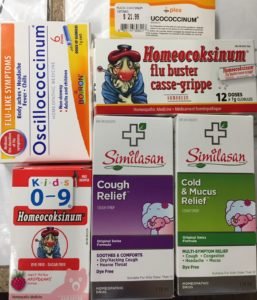-
Recent Posts
Categories
Archives
- February 2020
- October 2019
- September 2019
- August 2019
- July 2019
- March 2019
- December 2018
- June 2018
- January 2018
- December 2017
- October 2017
- June 2017
- April 2017
- February 2017
- January 2017
- December 2016
- September 2016
- August 2016
- June 2016
- March 2016
- February 2016
- January 2016
- December 2015
- October 2015
- August 2015
- July 2015
- June 2015
- May 2015
- April 2015
- March 2015
- February 2015
- January 2015
- November 2014
- October 2014
- September 2014
- August 2014
- July 2014
- June 2014
- May 2014
- April 2014
- February 2014
- January 2014
- December 2013
- November 2013
- August 2013
- July 2013
- June 2013
- May 2013
- April 2013
- March 2013
- February 2013
Meta
Monthly Archives: June 2018
Stone’s Drug Store Discontinues Homeopathic Products
Stone’s Drug Store in Baddeck, Nova Scotia will no longer carry homeopathic products, citing a lack of clinical evidence about their effectiveness.
“Concerns have been raised about the effectiveness of homeopathic products,” said Graham MacKenzie, pharmacist and owner of Stone’s Drug Store. “This led me to review the clinical evidence and I came to the conclusion that these products should no longer be sold at our pharmacy.”
Homeopathy was founded in Germany in the late 1700s and is based on the principle that “like cures like”. The basic concept is that the substances that cause illnesses such as the cold, flu, sleep disturbances, allergies, headaches and baby teething discomfort, will, in diluted form help the body to heal the condition.
“While I can accept the merit behind “like cures like”, as this is the basis for many vaccines, the fact that these substances are so diluted raises concerns,” said MacKenzie. “If homeopathy products can relieve symptoms of so many conditions, how can it do so in such diluted concentration? Where is the evidence?”
Over the past twenty years, the Cochrane Database of Systematic Reviews has conducted reviews of the studies and trials of homeopathic treatments on seven different conditions and found a lack of evidence to support their effectiveness[i]. The Australian National Health and Medical Research Council came to the same conclusion in 2015, stating “[t]here was no reliable evidence from research in humans that homeopathy was effective for treating a range of health conditions.”[ii] Furthermore, the UK National Health Service stated in 2017 that there is “no clear or robust evidence to support the use of homeopathy.”[iii]
Homeopathy products do not require a prescription, are not classified as drugs by Health Canada and can be purchased in most pharmacies as self-selection in the over-the-counter aisles.
“As a pharmacist, my first priority is to provide a wide range of safe and effective health products but if I do not have a professional comfort level with a certain product, I have a duty not to sell it,” said MacKenzie. “I do not see the removal of homeopathic products as restricting the range of choice for patients. Rather, it is an invitation to discuss their health care concerns and to review other options that may be more appropriate, cost-effective and successful for them.”
Stone’s Drug Store had carried five homeopathic products – two for cold and flu, two for sleep and one for teething. These products are no longer available there.
Stone’s Drug Store is located in Baddeck, Nova Scotia. It is a full-service pharmacy that includes a compounding lab to tailor medicines to the needs of patients. Graham MacKenzie has been a pharmacist for 25 years.
[i] http://www.cochranelibrary.com/cochrane-database-of-systematic-reviews/
[ii] https://www.nhmrc.gov.au/_files_nhmrc/publications/attachments/cam02_nhmrc_statement_homeopathy.pdf
[iii] https://www.england.nhs.uk/wp-content/uploads/2017/11/items-which-should-not-be-routinely-precscribed-in-pc-ccg-guidance.pdf

